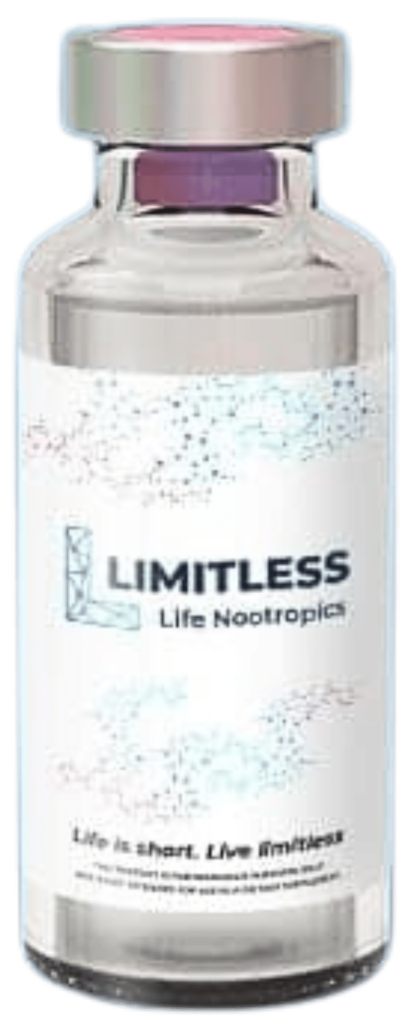Now that 2020 is here, many people “in the know” are seriously worried about the future of our healthcare system.
As I’ve said many times across my books and podcasts, our healthcare system is actually the “sick care” system.
Patients often find themselves becoming their own advocates, as their doctor will not help them achieve truly optimal levels of health.
Many physicians will only treat their patients once they are SICK and in desperate need for help, opting for a reactive approach instead of focusing on preventative measures.
Why is this happening?
Furthermore, how come it’s so hard for patients to find the care and guidance they really need?
To start, there’s no real “objective” way to measure good healthcare:
“The world of “objective” physician measures is increasingly crowded. Everyone claims to have meaningful objective measures.
Payers and providers are bombarded with measures – the Centers for Medicare & Medicaid Services Stars (CMS Stars), the Healthcare Effectiveness Data and Information Set, Leapfrog, CAHPS, total cost of care, episodic groupers, bundled costs, risk scoring, and adjustment – the list goes on.
While each of these is useful for a specific purpose, none tell consumers if a physician delivers good care.”
How bad is our current situation, really?
Am I over-exaggerating when I have numerous high-level doctors nod their heads in total agreement with what I’m seeing?
Or am I barely scratching the surface?
I believe these 4 stories will paint a picture of the dismal state our healthcare system is in right now…
Table of Contents
ToggleStory #1: Firing Scientific Editors For Doing Their Job Properly

If you’re a scientist reading this, you’re probably familiar with the academic publisher Frontiers.
They’re one of the “tip of the spear” publications when it comes to scientific research.
Hundreds of thousands of prestigious papers have been published there, and their reputation is revered amongst researchers.
31 editors were fired from their jobs in 2015 after complaining about the way other staff members were “interfering with editorial decisions and violating core principles of medical publishing”.
Here are some interesting takeaways from the news article:
“The editors say Frontiers’ publication practices are designed to maximize the company’s profits, not the quality of papers, and that this could harm patients.”
“Jos van der Meer, a former editor-in-chief of Frontiers in Medicine…says he was sometimes notified about the acceptance of papers that he didn’t approve of, or that he felt were handled by the wrong associate editor.
(On the other hand, when a paper was rejected, Frontiers would ask him if it was the right decision, he says.) “I realized I had very little to say,” Van der Meer says. “I felt like a puppet on a string.”
“Frontiers staff interfere with editorial decisions, for instance by moving manuscripts from one editor to another to accelerate review, inviting authors to write a commentary without the knowledge of editors, and sometimes “deliberately overriding” editorial decisions.”
Sadly, this was not the first time Frontiers has dealt with editors who would not comply to mediocre editorial standards.
One senior editor even wrote an extensive guest piece in 2018 on how she was also sacked from Frontiers and had ALL her manuscript rejections reversed.
Her crime?
Rejecting too many low-quality papers instead of putting them in the “rigorous” peer review process, where rejection is supposedly unlikely:
“It is a business decision for an author-pays (Gold) Open Access publisher to reject all that, in order to maintain quality, or wave it through after some “rigorous” peer review, and pocket the article processing charges (with Frontiers up to $2950 a pop).
…also subscription-based journals must fill their pages with something, or risk being thrown out of the subscription package or terminated by the publisher.
…[The Frontiers Journal Development Specialist] mentioned that the rejection rate within the [Microbial Biotechnology, Exotoxicology and Bioremediation] section had increased to over 60 %, a factor which could not be tolerated by the editorial office, and not without explaining to me that in the past a number of Frontiers’ Chief Editors had to leave the Journal.”
Despite being fully transparent in her reasons for rejecting the paper (which were legitimate), she was quickly let go.
And in case you think Frontiers is the only journal to have undergone some serious questioning in regards to its validity…
Let’s take a good look at our friends from Nature:
“…a computer-generated hoax article was submitted to The Open Information Science Journal published by Bentham Science Publishing.
The paper was accepted and the authors were asked to pay US$800 for publication.
At this point the authors withdrew their manuscript. The editor-in-chief of the journal, when contacted by Nature, reported that he had not seen the article and stated that he would resign.”
In their minds, they are the supreme overlords of the scientific community and everything they touch turns to gold.
But according to research scientist Carlos Sierra, this is far from the truth.
He attended a talk from a Nature editor who basically said that Nature is awesome, and everyone should be submitting their papers to them.
Rightfully, he had several issues with this talk:
“One is the power by which one single person can influence what scientific direction a field may take.
I do not care about what type of papers Nature wants, but other scientists may. Given the strong competition for jobs in the academic market, a paper in Nature may make the difference in a person’s career.
If a Nature editor comes and tells you what type of paper they want, you may take the bait. A scientific field therefore, may move in a specific direction predisposed by the interest of a single editor.”
Having spoken to multiple scientists who are very high up in the “food chain”, all of them have agreed with the following…
Once you reach a certain level, politics and bribe money get involved.
“Science” doesn’t matter as much as your first-year professors say it does.
How does this relate to healthcare, you may ask?
Many clinical and medical breakthroughs are usually based on the papers put forth by these publications.
While science is not a perfect system, it better be reliable.
If we can’t get our issues sorted with basic research, who’s to say this lack of standards doesn’t extend all the way to the very top of medical care?
Story #2: Most Studies Are Either Unreliable, Or Cannot Be Replicated (Or Both)

Putting conflicts between editors and their employers aside, let’s dive deeper and look at the studies themselves.
As I wrote in Living A Fully Optimized Life:
“Studies today are almost worthless and certainly cannot be taken at face value from anyone.
Their designs have been manipulated to achieve a specific result, and a large portion of studies cannot be successfully replicated.
They’re often written in complex language, making them difficult to interpret. As a result, you have to learn how to “study the study” and “follow the money.”
There are many who live and die by the ‘infallible’ scientific method, and yet they fail to see its inherent flaws and biases.
To make matters worse, the statistical methods used in most studies is such that “if measurement errors were to be taken into account in every study in the social sciences, nothing would ever get published”.
From false AI-generated studies readily accepted by major publishers, to intentionally hiding known faked results so every study based on those fake results doesn’t get rejected, it’s almost shocking what people can get away with.”
Your typical “scientism” bro will point out that this replication crisis is only present in the social sciences.
(FYI: When a study is replicable, it means that you can follow the study’s methods to the letter and achieve the exact same results, or at least very close to it)
They’ll argue how this so-called crisis is grossly over-exaggerated, telling you how the rate of scientific misconduct has not changed over the past few decades.
WRONG!
The biological sciences are just as rife with fraudulent studies.
Immunologist Dr. Tim Errington attempted replicating the results of five groundbreaking cancer studies.
Two passed the test, two others proved inconclusive, the last one was completely irreproducible.
Here’s what he had to say about the results:
“What we see in the published literature is a highly curated version of what’s actually happened.
The trouble is that gives you a rose-tinted view of the evidence because the results that get published tend to be the most interesting, the most exciting, novel, eye-catching, unexpected results.
…[It’s not about fraud] It’s about a culture that promotes impact over substance, flashy findings over the dull, confirmatory work that most of science is about.”
A recent survey of 1,576 scientists done by Nature revealed that over 50% of scientists failed to reproduce their OWN experiments!
That’s not even counting the 70% of researchers who could not reproduce the experiments done by other people.
And when asked why this was the case, “pressure to publish and selective reporting” were the two most common reasons given
I’ve personally seen this first-hand, both in talking with doctors/researchers and doing my own investigative work.
If you read my MUST-SEE article on Metformin from last week, you’ll know exactly what I’m talking about.
There are several high-profile biohackers, academics and journalists who have been spoon-fed several negative myths about Metformin’s life-extension benefits.
Yes, I used several studies to show why Metformin is an essential component of any stack for fully optimized health.
But I also thoroughly debunked studies that were either taken out of context or designed poorly.
Don’t get me wrong: There is a time and a place for citations and evidence-backed research.
The TOT Bible is THE most definitive medical resource for all things related to therapeutic testosterone, backed up by nearly 600 studies.
With that being said, it is imperative for each and every one of us to be cautious and downright skeptical of scientific studies.
Don’t just take someone’s word for it – read the study yourself, ask your own questions, and never stop seeking the truth.
Story #3: Ridiculous Wait Times at Sick Care Facilities (Hospitals, Urgent Care Centers, HMO’s)

Let’s take our focus towards a larger-picture view of healthcare.
Have you ever dreaded going to the emergency room (ER), knowing how long it would take before you finally got treated?
You’re not alone.
The statistics about hospital patient wait times in the United States paint a very bleak picture:
“The average hospital emergency department (ED) patient in the United States waits more than an hour and half to be taken to his or her room and 2.25 hours before being discharged.
Patients who arrive at EDs with broken bones wait a painful 54 minutes, on average, before receiving any pain medication.
…the number of patients who leave EDs without being seen has almost doubled in recent years.
…the average charge for an outpatient emergency room trip was $1,026 in 2010 (and it grew to over $1,900 in 2016), twice the average monthly rent Americans paid at the time, and $13,198 for admitted patients”
And for the Canadians who think their healthcare system is the superior model every other country should emulate?
They should think twice before throwing stones from glass homes, according to a report from the Canadian Institute for Health Information:
“…compared to other industrialized countries, Canada has the highest proportion of patients reporting excessively long waits in an emergency department
29% of Canadians had to wait four hours or longer before being seen by a practitioner during their most recent emergency department visit…almost three times the international average of 11% of patients who had to wait that long.
Canada also topped the list for having the highest proportion of patients with long delays to see specialists, with 56% waiting longer than four weeks, compared with the international average of 36%.”
Having consulted with several clients from Canada, this doesn’t surprise me in the least bit.
I’ve lost count of the number of stories where Canadians will literally travel to the United States and pay tens of thousands of dollars to get their health problems fixed immediately.
For them, it was infinitely better than having to wait several months to see a specialist, who may not even be able to treat the patient.
And it’s not so easy for the doctors themselves, who are victims to the relentless demands of the higher-ups in healthcare administration.
They have hundreds of patients who need to be seen every day.
There simply isn’t enough time in the day to spend even an hour with them, let alone provide a full intake with them.
In order to meet patient demand and make medical practices profitable, insurance software programs force Doctors to spend only 10-15 minutes of attention with most patients.
What can an honest, well intentioned Doctor do to make an impact with a patient he or she only spends 10-15 minutes with?
I mean let’s be honest.
The entire system has failed.
Patients are no more than automatons on a conveyor belt being given bandaid RX after RX to medicate their symptoms instead of a proper evaluation diagnosing the root cause of what ails them.
And when it comes to psychiatrists, many ER departments need 1-2 of them working full-time, 24/7.
They’re fully booked and forced to work ungodly hours, including all of the usual holidays.
It’s no wonder why the physician burnout rates are at an all-time high.
Story #4: Big Pharma’s Fish Oil Fiasco

What critique of the “sick care” system wouldn’t be complete without a discussion about the pharmaceutical industry?
You could write several books about corruption and Big Pharma, and never really go deep enough into understanding how broken the system is.
So for the sake of brevity, I’ll focus my attention on a very recent drug approval.
Last month, the FDA approved Vascepa (icosapent ethyl) for treating heart problems in older adults (45 years old and up) with elevated triglyceride levels:
“Vascepa is the first FDA approved drug to reduce cardiovascular risk among patients with elevated triglyceride levels as an add-on to maximally tolerated statin therapy.
Statins are drugs used to treat elevated cholesterol levels and reduce the risk of cardiovascular events.”
Sounds great, right?
But if you look closely, it’s basically fish oil (the ethyl ester form of eicosapentaoic acid [EPA]) wrapped up in a nice little pill.
If this is the case, why not just supplement with a high-quality over-the-counter fish oil?
It’s certainly much cheaper and more accessible.
Well, Big Pharma would have you believe that fish oil does nothing to help treat heart disease.
They’ll parrot a meta-analysis done in 2018 involving nearly 80,000 individuals.
According to inflammation expert Dr. Alex Vasquez, this study was rife with errors:
“(1) unjustified selective exclusion of data
(2) non-therapeutic dosing
(3) use of unnatural/ semisynthetic form of fish oil
(4) conclusions at odds with data
(5) pro-pharma conflicts of interest among authors, publication, and supporting organizations
(6) no mention anywhere in the article of the importance of the omega-3 index, the concept and use of which is highly important as documented more than 20 years previously and repeatedly validated and widely published in leading scientific and cardiology specialty journals.”
Dr. Vasquez has spent a great deal of time debunking Big Pharma’s attempts to invalidate fish oil’s numerous health benefits.
I highly recommend reading his thorough breakdown of the fraudulent ASCEND study.
This podcast with Dr. Bill Harris also provides an exhaustive look into the benefits of supplementing with fish oil.
Putting aside the obvious push for “prescription fish oil”, let’s take a step back and see what we can take away from all this.
Big Pharma is incentivized to treat people, not cure them.
It is 100% driven by profit, using misinformation and scare tactics on uneducated and fearful people who will buy harmful products and treatments.
Top universities have exposed themselves as “sophisticated” advertising agencies that will make a drug look good if they’re “compensated” well enough.
The system is so deep in the pockets of everything that we touch, almost to the point where there’s virtually no way out.
Doctors get paid generous kickbacks for pushing opioid prescriptions on their patients, knowing full well it won’t solve the root problem.
But some doctors see exactly what’s going on, and some of them are actively working to completely separate medicine from Big Pharma.
Like Graham Chapman’s character said in a Monty Python skit, “There’s nothing wrong with you that a very expensive course of medical treatment can’t prolong”.
How Can I Escape The “Sick Care” System And Become Fully Optimized?
Like I said in the very beginning of Living A Fully Optimized Life:
“YOU and you alone, are responsible for your health.
Only you truly have the power–not your healthcare provider, nor your spouse, your insurance company or anyone else.
The cavalry isn’t coming to save you.
Your doctor isn’t anxiously pouring over your medical records to anticipate problems.
You must take control and act now.
Don’t be reactive like 99.9% of the population and only take action when sickness occurs.”
You know your own body better than anybody else does.
You have a fully functioning brain that is capable of discerning truth from fiction.
And if you’re reading this, you already have access to the BEST materials available for taking your health to the highest level possible.
The days of your family doctor or general practice Doc being able to ensure you age gracefully and in the context of optimal health are long gone.
It is past the time you recognize nobody is going to take care of your health for you.
Stop being a reactive participant to your body’s aging and degrading health.
Make the CONSCIOUS CHOICE to optimize your biological systems and take a preventative approach towards your well-being.
And if you truly don’t know where to start, I’ve made it easy for you!
LIV Health will hold your hand and walk you down the optimization health care path based on your unique wants and needs.
Click Here today to get on the Optimization Train!
And if you want to join my group of high-conscious and high-performance healthy humans (including many of the world’s top Optimization Physicians and leading Subject Matter Experts) who will help and teach you how to become fully optimized, sign up for OptimizedForever.



